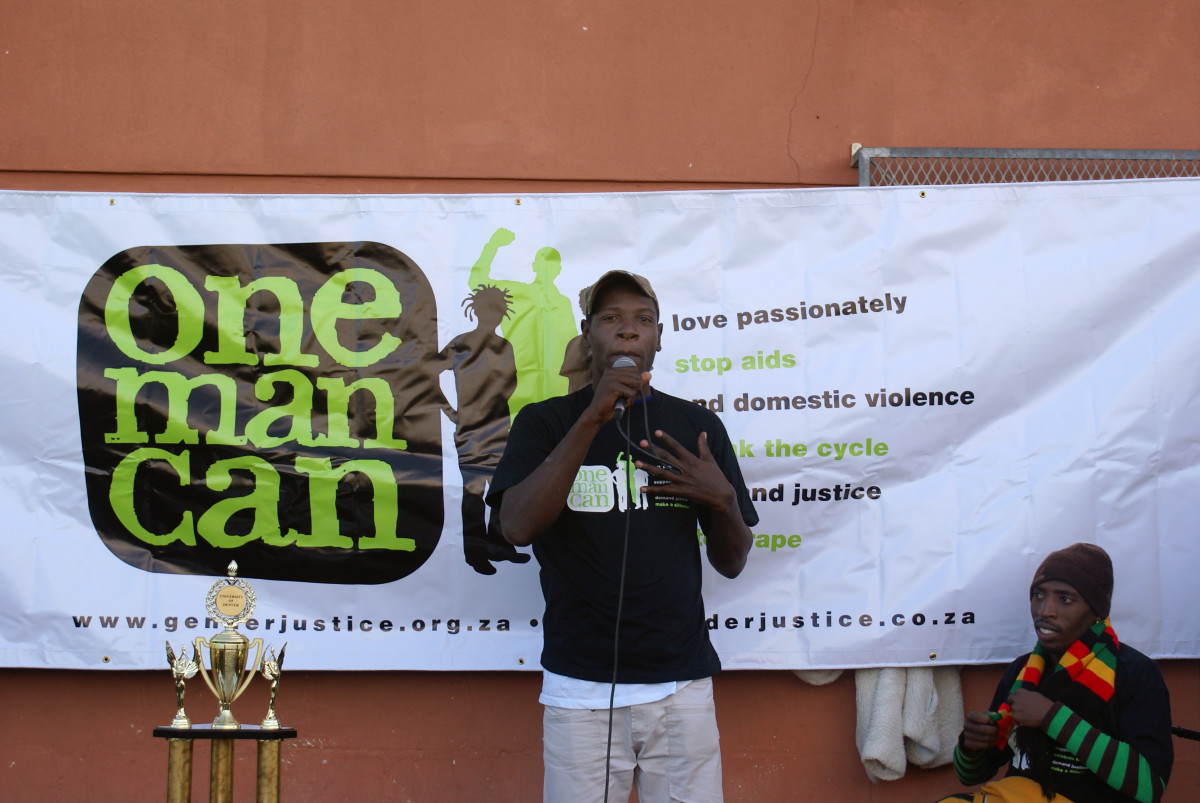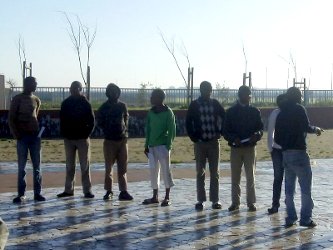|
|
Our local advocacy work has often included supporting community members who have been raped or assaulted; accompanying them to court, engaging with local police and prosecutors to try and ensure that the cases are investigated and prosecuted rigorously and helping to mobilize the local community. Fairly recently, our pilot One Man Can Branch in Khayelitsha supported one of its own members through a rape trial. Despite the ongoing efforts of Sonke and the community, the case was ultimately dismissed. This frustrating experience highlighted for us the importance of advocating for improved implementation across the board and it is with this in mind that we are proudly supporting Shukumisa.
“Sonke is excited to be a part of the Shukumisa campaign. Our participation in the campaign reflects our commitment to aligning our advocacy work with work being carried out by other women’s rights organisations.
The campaigns focus on ensuring implementation of the Sexual Offences Act also resonates strongly with our conviction that good laws do not translate into changed practice if there isn’t strong civil society advocacy demanding it,” says Sonke Executive Director, Dean Peacock.
It was just over three years ago when the sexual offences laws in South Africa were updated. The Criminal Law (Sexual Offences) Amendment Act 32 of 2007 (SOA) consolidates all sexual crimes in one law, defines sexual crimes gender neutrally to apply to both men and women, and provides for rape survivors to obtain post-exposure prophylaxis (PEP), among other provisions. Despite the promising law reform, the SOA is unevenly implemented across the country.
The government has been slow to produce implementing policy, with the Draft National Policy Framework just produced this year.
In an effort to build momentum in government and civil society to address implementation of the SOA, the National Working Group on Sexual Offences created the Shukumisa Campaign. Shukumisa, which means to “shake things up” in isiXhosa, is promoting a South Africa where everybody treats rape as a serious crime – a country where quality health, policing and legal services are available to all rape survivors nationwide. Since 2008, Shukumisa has been monitoring police stations, courthouses, and hospitals to determine what services are in place for rape victims, as required by the SOA and its implementing policies. After each round of monitoring Shukumisa has compiled the results of its monitoring in reports which it submits to the South African Police Service (SAPS), the Department of Justice and Constitutional Development and the Department of Health.
Most recently the campaign conducted monitoring activities nationwide as part of the 16 Days of Activism for No Violence Against Women and Children. Lisa Vetten, the secretariat for the National Working Group on Sexual Offences, noted that only half of the 60 monitored SAPS stations had access to forms on HIV testing of the alleged rapist and information sheets for rape survivors about crucial post-exposure prophylaxis and HIV testing. Both of these are required by SAPS’ National Instructions 3/2008 on Sexual Offences.
In contribution to the Shukumisa Campaign’s ongoing efforts, Sonke Gender Justice is currently undertaking monitoring of SAPS stations throughout the Western Cape. This project, which complements the Campaign’s monitoring efforts, is a quantitative research project which will assess the baseline level of compliance in SAPS stations in the Western Cape. Sonke will be visiting approximately 50 stations before the end of May this year and will analyze findings for notable patterns. For example, findings will be analysed for patterns within rural, urban and peri-urban locations, by communities’ income brackets, and by crime prevalence in each location.
The research conducted thus far has gone very smoothly, with members of the police service keenly engaging with the interviewers, enthusiastic about any efforts that can help them improve their services. After many of the complaints that we have heard about the police services over the years, this commitment to improvement came as a wonderful surprise. (We have recently experienced similar enthusiasm in other interactions with the police, most notably during the 16Days of Activism last year and are looking forward to ongoing positive interactions with SAPS.)
In addition to the monitoring activities, the Shukumisa Campaign seeks to engage with SOA policies. The campaign is currently seeking to re-open the comments process for the recently produced Draft National Policy Framework on Sexual Offences. According to section 62(1)(c) of the SOA, one of the purposes of the National Policy Framework is to “enhance the delivery of services as envisaged by the [SOA] by the development of a plan for the progressive realisation of services for victims of sexual offences within available resources.” In its current iteration the Draft Framework does not adequately incorporate procedures to empower rape survivors throughout the complaints, treatment, and prosecution processes. More specifically, it does not adequately incorporate a role for civil society in ensuring the progressive realisation of services for rape survivors.
The Shukumisa Campaign is currently providing substantive recommendations on the Draft Framework to submit to the Portfolio Committee for Justice and Constitutional Development in Parliament. For more about the Shukumisa Campaign visit www.shukumisa.org.za.

